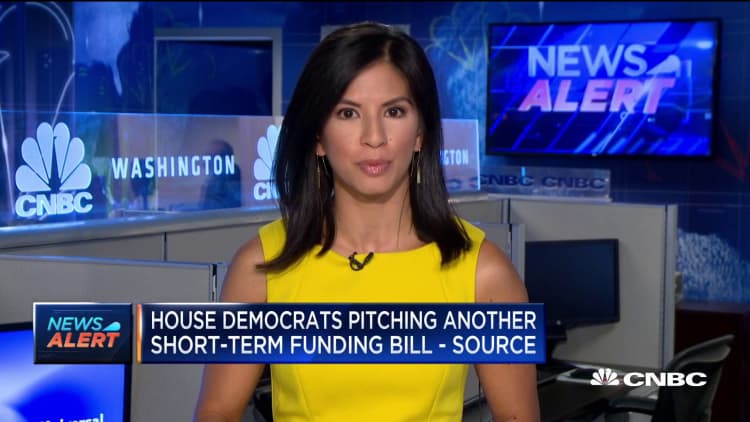Democrats are considering the possibility of passing a short-term funding bill to keep the government running after Sept. 30.
During a caucus conference call on Friday, Majority Leader Steny Hoyer raised the specter of a stop-gap measure that lasts through Nov. 22 in order to prevent a government shutdown, according to a person briefed on the talks. Another person suggested a more likely date could be Dec. 6. Politico was the first to report on the discussions.
Lawmakers are currently on summer recess and will not return to Washington until Sept. 9. Floating a so-called continuing resolution is an acknowledgement that Congress simply will not have enough time to pass all 12 spending bills before the end of the fiscal year, one of the sources said.

"There is a possibility that we will need a short-term CR to provide time for the Senate to do its work," a spokeswoman for Hoyer said. "Mr. Hoyer continues to urge the Senate to mark up and pass their bills as quickly as possible, so that we can go to conference and pass legislation to fund the government and prevent a shutdown."
So far, the House has passed 10 appropriations bills. The Senate has not passed any, as the Republican-led chamber waited on President Donald Trump to strike a deal with Democrats on top-line spending numbers. Trump signed that agreement early this month.
The White House has also warned lawmakers that Trump would not accept another "omnibus" spending package that combines all 12 appropriations bills as he did in 2018 over the protests of his conservative base. A senior administration official said that the White House would rather pass the bills in smaller chunks, with the controversial fight over funding for the Defense and Homeland Security departments coming up first.
In the last round of spending negotiations, Homeland Security went last, resulting in a bitter fight over the president's border wall that led to the longest government shutdown in history.
"We expect those to be early in the process and not neglected," a White House official said. "Those are the bills that contain the bulk of what are the top-tier administration priorities in the appropriations process."
However, House Democrats have not committed to taking up the spending bills in any specific order, according to an aide. The source said Democrats are discussing combining three or four spending bills into one package, as per the president's request. But their goal is to keep all of those packages moving through the legislative process on the same timetable, with the hope of completing all of the work by early December.
The White House official said the administration is prepared to consider short-term measures but preferred a continuing resolution that lasts for a full year if lawmakers cannot agree on individual spending bills.

